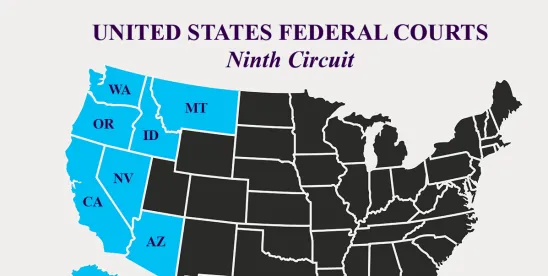In EpicentRx, Inc. v. Superior Court, Case No. S282521, 2025 WL 2027272 (Cal. July 21, 2025), the California Supreme Court held that forum selection clauses may be enforced against California plaintiffs even when the selected forum — such as the oft-selected Delaware Court of Chancery — would not afford plaintiffs a right to a civil jury trial they would otherwise have had in a California court. This decision effectively overrules Handoush v. Lease Financing Group, LLC, 41 Cal.App.5th 729 (2019), in which the California Court of Appeal (First District) restricted courts from enforcing such clauses where the plaintiff would not be entitled to a jury trial in the selected forum. The Supreme Court’s decision thus clarifies the law in California, providing practitioners and litigants with greater certainty that forum selection clauses will be enforced.
EpicentRx, Inc. (the “Company”) is a biotechnology company principally located in California but incorporated in Delaware. A minority stockholder sued the Company, its controlling stockholder and various related individuals in San Diego Superior Court. Plaintiff alleged that defendants diverted stockholder money for their own personal benefit, making the Company financially unfit and rendering their promises of a “big exit” false and misleading. Plaintiff’s claims included breach of contract, fraudulent concealment, promissory fraud, breach of fiduciary duty and unfair business practices.
Defendants moved to dismiss the lawsuit under the doctrine of forum non conveniens based upon mandatory forum selection clauses in the Company’s certificate of incorporation and its bylaws. Both designated Delaware Court of Chancery as the sole and exclusive forum for resolving certain disputes relating to corporate relationships, obligations and activities. The forum selection clause in the certificate of incorporation expressly covered actions including stockholder derivative actions, actions asserting breach of fiduciary duty by employees, directors and officers, claims against the company involving the Delaware General Corporation Law and claims involving the company’s internal affairs.
The Superior Court denied the motion, relying primarily upon Grafton Partners v. Superior Court, 36 Cal.4th 944 (2005). In Grafton Partners, the California Supreme Court held that pre-dispute waivers of jury rights are unenforceable. The Superior Court observed that at least some of plaintiff’s claims gave rise to a jury trial right in California courts. Enforcing the forum selection clause, the Superior Court held, would have effectively deprived plaintiff of a jury trial on these claims because jury trial is not available in Delaware Court of Chancery.
Defendants subsequently filed a writ of mandate for review by the Court of Appeal. The Court of Appeal agreed to review the decision, ultimately denying relief in reliance upon Grafton and Handoush. Several defendants sought review by the California Supreme Court.
The Supreme Court granted review on the question: “Did the Court of Appeal correctly hold that this action must remain in California despite the contractual forum selection clause in [the Company’s] bylaws and certificate of incorporation, which calls for this action to be filed in the Delaware Court of Chancery?” The Court answered: No.
The Supreme Court explained that although California does recognize a fundamental public policy interest in preserving the right to a civil jury trial and pre-dispute jury waivers are invalid, this policy is tethered to jury trials in California courts. The policy does not conclusively forbid waivers outside California courts. Nor does it preclude contracting parties from agreeing to resolve disputes in fora outside California, even when those fora recognize much more limited (or no) jury trial rights. The Court recognized the importance of enforcing forum selection clauses, citing federal authority from United States Supreme Court and the United States Court of Appeals for the Ninth Circuit.
The California Supreme Court reversed with instructions for the Superior Court to consider the plaintiff’s other arguments for non-enforcement of the forum selection clause, namely that they were improperly adopted and not “freely and voluntarily negotiated at arm’s length.” The Court declined to address the merits of these other theories because they were not considered or decided by the Court of Appeal. Although the Court held that the loss of jury trial rights could not alone justify non-enforcement of a forum selection clause, it left open the possibility that jury trial rights might be relevant to related public policy arguments for non-enforcement.
EpicentRx is an important decision for practitioners in California. It dispels the confusion created by Handoush, and thus provides much greater certainty to California-based corporations that California courts will enforce forum selection clauses — often selecting the Delaware Court of Chancery, but also increasingly selecting business courts being established in Texas, Nevada and other jurisdictions — for resolution of complex corporate and business disputes.



 />i
/>i

